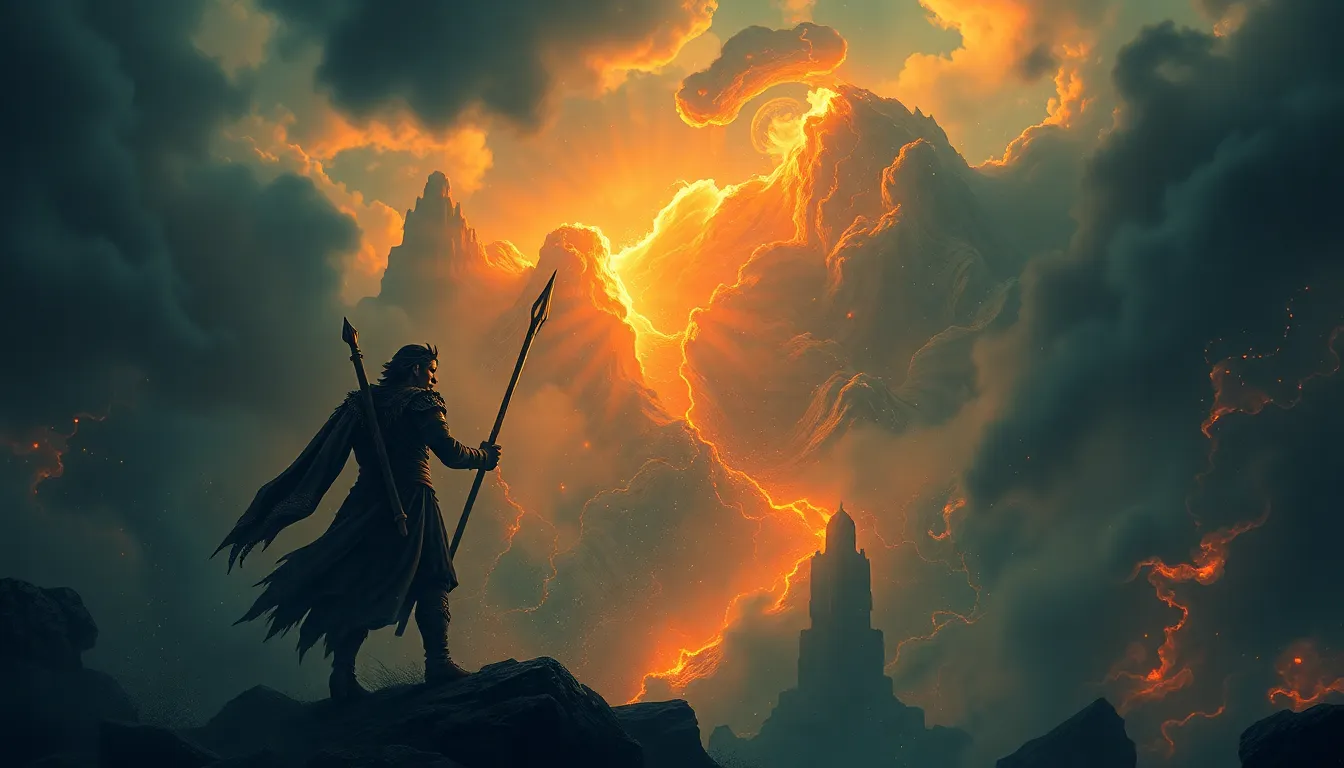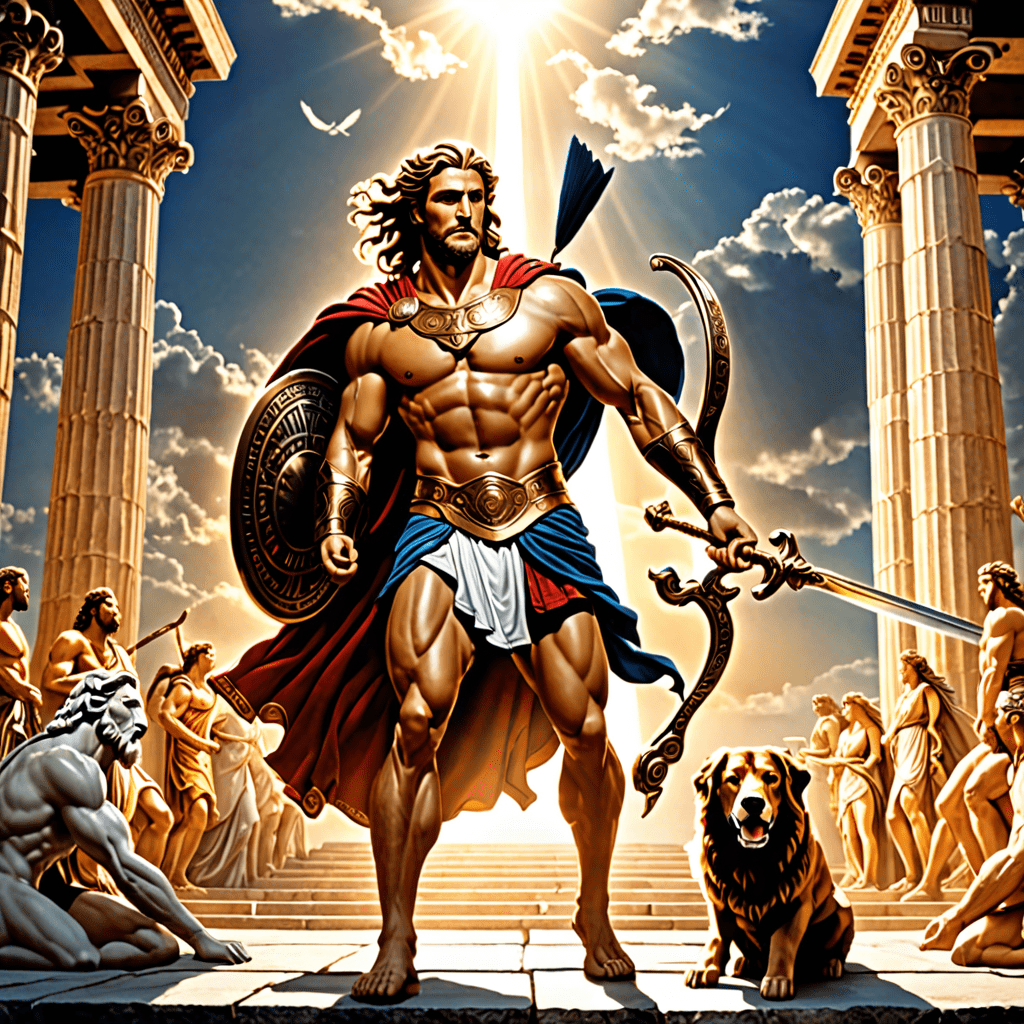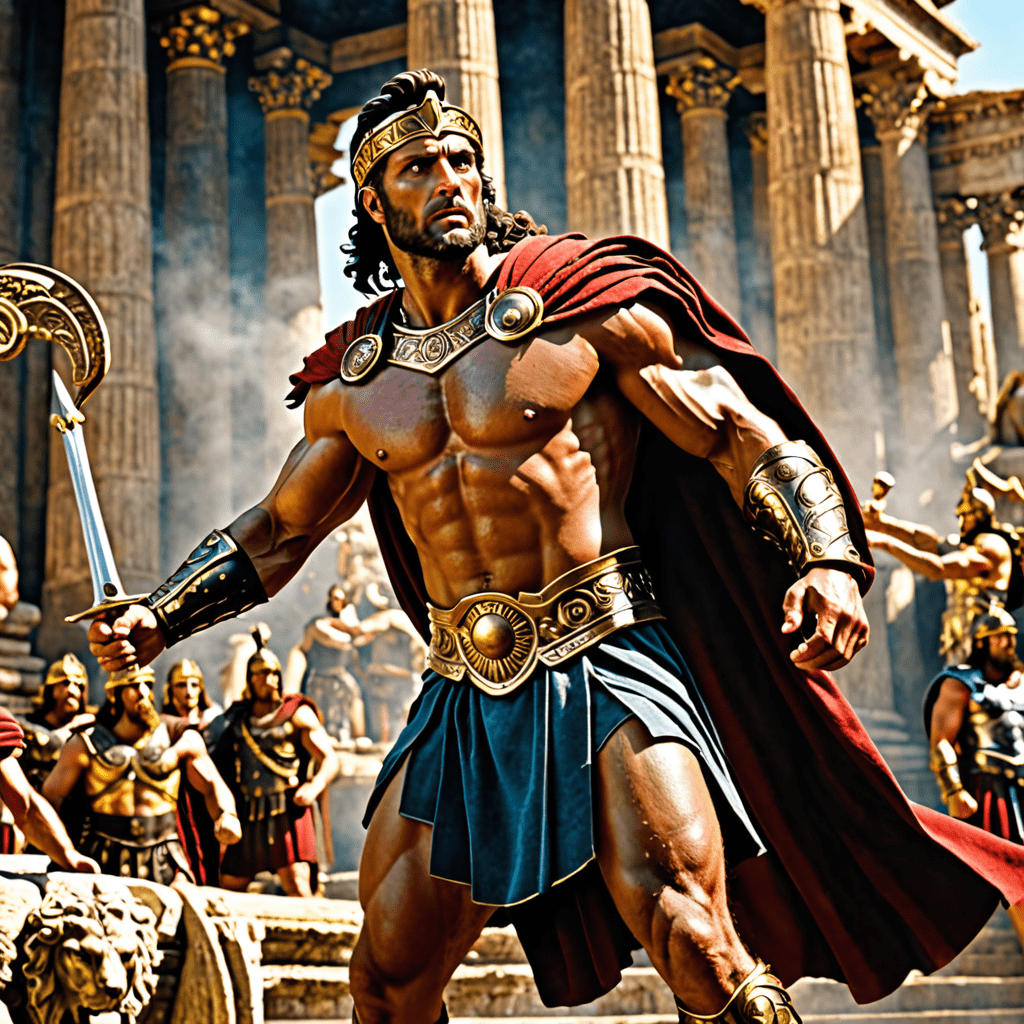Cultural Hero Myths: The Legends That Define Our Aspirations
I. Introduction
Cultural hero myths are narratives that celebrate individuals who embody the values, dreams, and aspirations of a society. These myths often illustrate the journey of a hero who overcomes adversity, challenges norms, and inspires others. They are not just stories; they are pivotal in shaping the moral and ethical frameworks within which societies operate.
The importance of hero myths lies in their ability to reflect societal values and ideals, providing role models for individuals and communities. Through these narratives, cultures communicate their beliefs about bravery, sacrifice, and the pursuit of justice.
This article will explore the nature of hero myths, their historical context, cultural variations, psychological appeal, their role in social movements, critiques, and future directions. Each section will delve into how these legends have shaped human aspirations across time and geography.
II. The Nature of Hero Myths
A. Characteristics of hero myths across cultures
Hero myths share several characteristics, including:
- Transformation: Heroes often undergo significant personal growth or transformation.
- Quest: Many hero stories involve a quest or journey that tests the hero’s character.
- Adversity: Heroes face challenges or antagonists that they must overcome.
- Legacy: The impact of the hero’s actions often extends beyond their lifetime, influencing future generations.
B. Common themes and archetypes in hero stories
Common themes in hero myths include:
- The Hero’s Journey: A narrative structure that describes the hero’s adventure, challenges, and ultimate transformation.
- Good vs. Evil: A moral dichotomy that pits heroes against villains.
- Redemption: Many heroes seek to redeem themselves or others, emphasizing themes of forgiveness and second chances.
C. The role of mythology in human psychology and identity formation
Mythology plays a crucial role in shaping individual and collective identities. Hero myths often serve as a mirror reflecting societal ideals, allowing individuals to explore their values and aspirations. They provide frameworks through which people can understand their own experiences and challenges, fostering a sense of belonging and purpose.
III. Historical Context of Hero Myths
A. Evolution of hero myths from ancient civilizations to modern times
Hero myths have evolved significantly from ancient times, where figures like Hercules and Gilgamesh embodied physical strength and valor, to modern interpretations that include intellectual and moral accomplishments. This evolution reflects changing societal values and the complexities of contemporary life.
B. Notable historical figures who became cultural heroes
Many historical figures have transcended their times to become cultural heroes, including:
- Martin Luther King Jr.: A symbol of the civil rights movement, advocating for justice through non-violent means.
- Nelson Mandela: Representing resilience and reconciliation in the fight against apartheid in South Africa.
- Mother Teresa: An emblem of compassion and service, inspiring countless people through her humanitarian work.
C. The impact of historical events on the creation of hero myths
Historical events often catalyze the creation of hero myths, with specific crises or movements highlighting individuals who rise to prominence. These events provide a backdrop that amplifies the hero’s virtues and sacrifices, embedding them into the cultural narrative.
IV. Cultural Variations in Hero Myths
A. Comparison of hero myths in different cultures (e.g., Greek, Native American, Asian)
Hero myths vary significantly across cultures, reflecting diverse values and beliefs. For example:
- Greek Myths: Focus on gods and demigods like Achilles, illustrating human flaws alongside heroism.
- Native American Myths: Often feature tricksters like Coyote, emphasizing a balance between wisdom and folly.
- Asian Myths: Heroes like Sun Wukong (the Monkey King) embody cleverness and moral complexity.
B. Influence of geography and environment on hero narratives
The geography and environment of a culture significantly impact its hero myths. For instance, coastal communities may celebrate sea voyagers and navigators, while mountainous societies may honor climbers and explorers. These narratives often reflect the struggles and triumphs inherent in their respective environments.
C. The role of language and storytelling traditions in shaping hero myths
Language and storytelling traditions play a crucial role in the transmission of hero myths. Oral traditions allow for the evolution of stories, adapting them to contemporary contexts while maintaining core themes. Written records, on the other hand, preserve myths across generations, solidifying their impact on cultural identity.
V. The Psychological Appeal of Hero Myths
A. Understanding why people resonate with hero stories
People resonate with hero stories for various psychological reasons, including:
- Identification: Individuals often see parts of themselves in heroes, fostering empathy and connection.
- Inspiration: Hero stories can motivate individuals to pursue their dreams and overcome personal challenges.
- Morality: Heroes often embody moral virtues, providing a framework for ethical behavior.
B. The role of aspiration, morality, and personal growth in hero narratives
Hero narratives frequently hinge upon themes of aspiration and personal growth. They illustrate the journey from ordinary circumstances to extraordinary achievements, reinforcing the belief that individuals can effect positive change in their lives and communities.
C. Psychological theories related to hero worship and admiration
Psychological theories suggest that hero worship fulfills fundamental human needs, such as the desire for safety, stability, and belonging. It can foster community cohesion and provide a sense of hope in challenging times, making heroes vital figures in both individual and collective psychology.
VI. Contemporary Heroes: Redefining the Myth
A. Examination of modern cultural heroes (e.g., activists, athletes, entertainers)
In contemporary society, heroes have expanded beyond traditional figures to include activists, athletes, and entertainers. These modern heroes often challenge social norms and inspire change through their platforms, reflecting the evolving nature of heroism.
B. The impact of social media on the creation and spread of contemporary hero myths
Social media has revolutionized how hero myths are created and disseminated. Platforms like Twitter and Instagram allow for rapid sharing of stories, enabling ordinary individuals to achieve hero status through acts of courage or advocacy, thereby democratizing the concept of heroism.
C. The intersection of celebrity culture and traditional heroism
Celebrity culture has blurred the lines between traditional heroism and fame, creating a new category of heroes who may not necessarily embody noble ideals. This intersection raises questions about the values we celebrate and the qualities we seek in our modern heroes.
VII. The Role of Heroes in Social Movements
A. Historical examples of heroes who catalyzed social change
Throughout history, certain heroes have catalyzed social change, including:
- Rosa Parks: Her refusal to give up her bus seat became a pivotal moment in the civil rights movement.
- Malala Yousafzai: Advocated for girls’ education and became a symbol of resilience against oppression.
- Greta Thunberg: A contemporary voice for environmentalism, mobilizing youth globally for climate action.
B. Analysis of modern movements and their heroes (e.g., civil rights, environmentalism)
Modern movements often find their heroes in individuals who take a stand against injustice, whether through activism, art, or political engagement. These heroes inspire collective action and solidarity, reinforcing the belief that change is possible.
C. The importance of heroic narratives in inspiring action and solidarity
Heroic narratives play a crucial role in motivating individuals to participate in social movements. By framing struggles in terms of heroism, these narratives foster a sense of purpose and urgency, encouraging collective action for a common cause.
VIII. Critiques and Challenges of Hero Myths
A. The dangers of idealizing figures and overs



